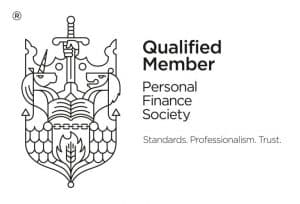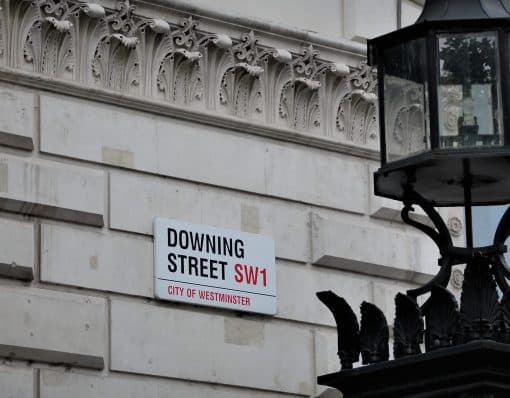Trusts


There are ways to legitimately protect your capital, the most common of which is to place your assets into a Trust for the purpose of protecting those assets for your family as part of your own estate planning.
So what is a Trust and what are the benefits?
A Trust is a private legal transaction where the ownership of your assets (property, shares, cash etc) are transferred to someone else (usually a small group of people or a trust company – called the Trustees) to look after for the benefit of the Beneficiaries (usually yourself and your spouse, your children and any other people you may wish to benefit from the Trust in future).
In terms of planning for Care Cost liabilities for example, a Trust needs to be set up whilst you are in good health– to avoid the Deprivation of Capital rules.
Having said that, there is a specific 6 month rule for making a gift in terms of the Deprivation of Capital rules. If a gift is made up to 6 months before you go into care, then the assets given away should be disregarded. Whilst this is useful to know, it can be risky trying to plan 6 months ahead, when health and social care needs can arise very quickly – so the best advice is to undertake your estate planning as soon as possible.
It’s important to re-iterate that the Local Authority can still scrutinise any arrangements you have made to protect your assets, regardless of when those arrangements were made.
But it’s certainly too late to think about making gifts when you are already in care, as the opportunity to protect your assets has already passed.
Sometimes people are concerned about the perceived loss of control of their assets if they are transferred into a Trust. In fact the position is quite the opposite. You can give the Trustees specific instructions about how you would like the assets to be used and although these are not legally binding on your Trustees, they will at least have a note of your wishes. It is necessary however for all the Trustees to agree on any course of action in relation to the Trust property, so you will not have to move out of your home if it’s placed into a Trust. You can also sell your home at any time and re-invest the money into another property, which will still be owned by the Trust – so there’s no need to worry about any loss of control.
There are a number of distinct advantages to setting up a Trust. These include:
- Avoiding expensive Probate Costs – when you die, even when you have made a Will, your Executor will need to get a Grant of Probate. The costs of this can often be up to 3% of your estates value – so for example a £300,000 estate could incur around £9000 in Probate costs. If you have set up a Trust you will avoid these costs.
In addition, obtaining a Grant of Probate can take months or even years. With a Trust, the Probate requirements don’t apply and the Assets within the Trust can be distributed to the Beneficiaries straight away.
- Avoiding Sideways Disinheritance – this is an issue which can arise that is often overlooked by families. Sideways Disinheritance can arise when one partner dies and the remaining spouse inherits the whole estate. If the remaining partner subsequently re-marries, then existing Will arrangements are often revoked. On the surviving partners death the estate will then pass to the new partner, which means that children can be disinherited.
With a Trust this can be specifically prevented from happening.
- Children inheriting at the wrong time – this issue can arise where your estate is distributed according to your Will (often passing to your children), but the timing of the inheritance might not be right. If your children are going through a divorce for example, the inheritance could be caught up in the divorce settlement and therefore wouldn’t pass to your child as you’d intended.
With a Trust, your assets are distributed by your Trustees in accordance with your wishes. The Trustees can therefore withhold the distribution of assets if they believe that it would not be what you had wanted to happen at that particular time.
- Dependent relative claims – even if you have made a Will, if you have chosen not to pass part of your estate to a dependent relative, for whatever reason, they can still challenge your Will.
With a Trust any legal challenge is unlikely to succeed unless the dependent relative is a named beneficiary.
- Incapacity – if your mental capacity reduces to the point where it’s determined that you no longer have the capacity to make decisions about your health and finances and you haven’t set up a Lasting Power of Attorney, your family would have to apply to the Court of Protection to be granted powers to make decisions on your behalf. This can be expensive and it takes time.
These are all valuable reasons to set up a Trust well before you or your relative go into care.
There are few disadvantages to setting up a Trust and transferring your assets. One consideration however, is that you do transfer the legal ownership of your property to the Trust, which means that you cannot use your property to secure a loan for example.
One other potential disadvantage is that the Trust will be liable to pay immediate Inheritance Tax on assets transferred into the Trust beyond the Inheritance Tax threshold of £325,000. This can be mitigated however, with good Independent Financial Advice.
One alternative to setting up a Trust is to Gift your assets to a third party, your children for example.
We don’t recommend doing this however, for a number of reasons. First and foremost, you lose total control over your assets. It might seem like nothing could go wrong and you have a close relationship with your children, but things can change. The most obvious example would be divorce, where your assets would be caught up in any settlement. Another situation could arise if your child died before you did, then your asset (home) would be passed to your child’s spouse, with no guarantee that they would continue to provide you with any continued support.
There are also tax implications to transferring your property as a Gift and it could be very expensive for your children.
In summary then, the most effective way to protect your assets for your family is to conduct some estate planning now, using a Trust well before you have a requirement for care.
Please remember, Trusts are not just for the rich. A Trust will help to protect your assets no matter what their value. If your assets are worth more than the threshold of £23,250 then you should protect them.
Trust Advice Service
We provide a comprehensive Trust Advice Service to clients. We take detailed instructions from you about how you want to protect your estate, which means you don’t have to visit a solicitor’s office and repeat your circumstances again to someone you don’t know. Importantly, we will also advise you on your potential Inheritance Tax liabilities, which a solicitor is not qualified to do.
We will then arrange for your Trust to be drawn up by the firm of solicitors who we use, at a preferential rate.
Once the Trust document is prepared, we will come and see you and go through the Trust document with you to make sure everything is covered according to your wishes, and return the signed Trust to the solicitors who will then send you a copy and arrange for your Trust to be registered.
The cost of our Trust Advice Service varies depending on the complexity of your requirements and the amount of time required to deal with the Trust, however, the price will always include drafting all the Trust documents and of course the face to service we provide.
If you would like to know more about our Trust Advice Service, please contact us for an initial discussion. You are under no obligation and all initial discussions and initial meetings are FREE of charge.
Awards and Accreditations
















We’ve only been clients for a couple of months, but we both feel that we have made the right decision. After first meeting Adele she put our minds at rest.
Mr & Mrs P
The quality of service from Adele and everyone at the company was excellent, in fact the service we received was better than that.
Mr & Mrs F
Christina is thorough and she explains matters in a clear manner. Time is always given for questions to be asked and I have never felt under pressure to buy any particular products.
Mrs D

